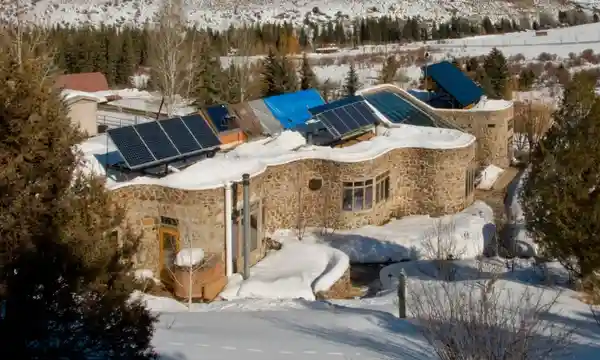Arguing for the mass insulation of buildings alongside a vast acceleration of renewables:
“We should crank [them] up with wartime urgency. There should be far more emphasis on efficiency.”
.
There is a lot of wrangling over energy bills – but what can really help is the more efficient use of energy:
To use less, the country needs a programme of energy efficiency measures and it needs it urgently. This programme needs to tackle those households most in need first – colleagues and I have shown that energy efficiency improvements enable home owners to afford to heat their homes for longer periods of the day – and we need to work out a fair way to pay for these improvements. Using less energy is a win-win, since it reduces reliance on natural gas, supports the transition to net zero, and reduces energy bills.
Energy bills: why yours is now so expensive, and where all the money goes
The trouble is that it’s going to cost a lot initially:
UK homeowners ‘need more support’ to install energy efficient tech
Energy price cap rise comes as ‘free insulation’ law runs out | openDemocracy
And the government is baulking at giving support:
UK treasury blocks cash for home energy efficiency scheme -The Telegraph | Reuters
But, really, it has to be done, according to ‘energy efficiency guru’ Amory Lovins, as reported in the Guardian:
Temperatures dropped far below freezing this week in Snowmass, Colorado. But Amory Lovins, who lives high up in the mountains at 7,200ft above sea level, did not even turn on the heating.
That’s because he has no heating to turn on. His home, a great adobe and glass mountainside eyrie that he designed in the 1980s, collects solar energy and is so well insulated that he grows and harvests bananas and many other tropical fruits there without burning gas, oil or wood.
Nicknamed the “Einstein of energy efficiency”, Lovins, an adjunct professor of civil and environmental engineering at Stanford University, has been one of the world’s leading advocates and innovators of energy conservation for 50 years. He wrote his first paper on climate change while at Oxford in 1968, and in 1976 he offered Jimmy Carter’s government a blueprint for how to triple energy efficiency and get off oil and coal within 40 years. In the years since there is barely a major industry or government that he and his Rocky Mountain Institute have not advised.
But for much of that time efficiency was seen as a bit of an ugly sister, rather dull compared with a massive transition to renewables and other new technologies. Now, he hopes, its time may have come. Lovins is arguing for the mass insulation of buildings alongside a vast acceleration of renewables. “We should crank [them] up with wartime urgency. There should be far more emphasis on efficiency,” he says.

Take his house, he says. By designing it to collect energy and to need no heating, it saves 99% of the space- and water-heating energy, and 90% of the electricity. “And it’s cheaper to build and saves construction costs,” he adds.